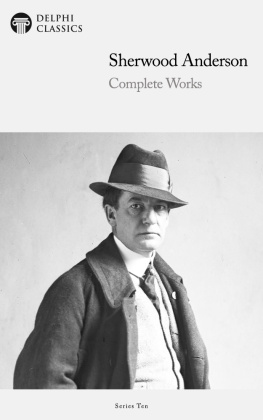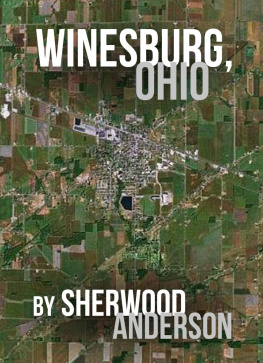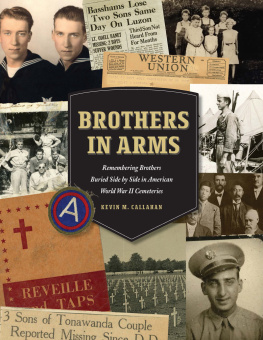The Project Gutenberg EBook of Poor White, by Sherwood Anderson#4 in our series by Sherwood Anderson
Copyright laws are changing all over the world. Be sure to check thecopyright laws for your country before downloading or redistributingthis or any other Project Gutenberg eBook.
This header should be the first thing seen when viewing this ProjectGutenberg file. Please do not remove it. Do not change or edit theheader without written permission.
Please read the "legal small print," and other information about theeBook and Project Gutenberg at the bottom of this file. Included isimportant information about your specific rights and restrictions inhow the file may be used. You can also find out about how to make adonation to Project Gutenberg, and how to get involved.
**Welcome To The World of Free Plain Vanilla Electronic Texts**
**eBooks Readable By Both Humans and By Computers, Since 1971**
*****These eBooks Were Prepared By Thousands of Volunteers!*****
Title: Poor White
Author: Sherwood Anderson
Release Date: February, 2005 [EBook #7414][Yes, we are more than one year ahead of schedule][This file was first posted on April 26, 2003]
Edition: 10
Language: English
*** START OF THE PROJECT GUTENBERG EBOOK POOR WHITE ***
Produced by Eric Eldred, William Flisand the Online Distributed Proofreading Team
[Note: The evident misprint of Book Six for Book Five in the originalis preserved here.]
POOR WHITE
A NOVEL BY
SHERWOOD ANDERSON
AUTHOR OF
WINESBURG, OHIO
TO
TENNESSEE MITCHELL ANDERSON
BOOK I
CHAPTER I
Hugh McVey was born in a little hole of a town stuck on a mud bank on thewestern shore of the Mississippi River in the State of Missouri. It wasa miserable place in which to be born. With the exception of a narrowstrip of black mud along the river, the land for ten miles back from thetowncalled in derision by river men "Mudcat Landing"was almost entirelyworthless and unproductive. The soil, yellow, shallow and stony, wastilled, in Hugh's time, by a race of long gaunt men who seemed as exhaustedand no-account as the land on which they lived. They were chronicallydiscouraged, and the merchants and artisans of the town were in the samestate. The merchants, who ran their storespoor tumble-down ramshackleaffairson the credit system, could not get pay for the goods they handedout over their counters and the artisans, the shoemakers, carpenters andharnessmakers, could not get pay for the work they did. Only the town's twosaloons prospered. The saloon keepers sold their wares for cash and, as themen of the town and the farmers who drove into town felt that without drinklife was unbearable, cash always could be found for the purpose of gettingdrunk.
Hugh McVey's father, John McVey, had been a farm hand in his youth butbefore Hugh was born had moved into town to find employment in a tannery.The tannery ran for a year or two and then failed, but John McVey stayed intown. He also became a drunkard. It was the easy obvious thing for him todo. During the time of his employment in the tannery he had been marriedand his son had been born. Then his wife died and the idle workman took hischild and went to live in a tiny fishing shack by the river. How the boylived through the next few years no one ever knew. John McVey loitered inthe streets and on the river bank and only awakened out of his habitualstupor when, driven by hunger or the craving for drink, he went for a day'swork in some farmer's field at harvest time or joined a number of otheridlers for an adventurous trip down river on a lumber raft. The baby wasleft shut up in the shack by the river or carried about wrapped in a soiledblanket. Soon after he was old enough to walk he was compelled to find workin order that he might eat. The boy of ten went listlessly about town atthe heels of his father. The two found work, which the boy did while theman lay sleeping in the sun. They cleaned cisterns, swept out stores andsaloons and at night went with a wheelbarrow and a box to remove and dumpin the river the contents of out-houses. At fourteen Hugh was as tall ashis father and almost without education. He could read a little and couldwrite his own name, had picked up these accomplishments from other boys whocame to fish with him in the river, but he had never been to school. Fordays sometimes he did nothing but lie half asleep in the shade of a bush onthe river bank. The fish he caught on his more industrious days he sold fora few cents to some housewife, and thus got money to buy food for his biggrowing indolent body. Like an animal that has come to its maturity heturned away from his father, not because of resentment for his hard youth,but because he thought it time to begin to go his own way.
In his fourteenth year and when the boy was on the point of sinking intothe sort of animal-like stupor in which his father had lived, somethinghappened to him. A railroad pushed its way down along the river to his townand he got a job as man of all work for the station master. He swept outthe station, put trunks on trains, mowed the grass in the station yard andhelped in a hundred odd ways the man who held the combined jobs of ticketseller, baggage master and telegraph operator at the little out-of-the-wayplace.
Hugh began a little to awaken. He lived with his employer, Henry Shepard,and his wife, Sarah Shepard, and for the first time in his life sat downregularly at table. His life, lying on the river bank through long summerafternoons or sitting perfectly still for endless hours in a boat, had bredin him a dreamy detached outlook on life. He found it hard to be definiteand to do definite things, but for all his stupidity the boy had a greatstore of patience, a heritage perhaps from his mother. In his new place thestation master's wife, Sarah Shepard, a sharp-tongued, good-natured woman,who hated the town and the people among whom fate had thrown her, scoldedat him all day long. She treated him like a child of six, told him howto sit at table, how to hold his fork when he ate, how to address peoplewho came to the house or to the station. The mother in her was aroused byHugh's helplessness and, having no children of her own, she began to takethe tall awkward boy to her heart. She was a small woman and when she stoodin the house scolding the great stupid boy who stared down at her withhis small perplexed eyes, the two made a picture that afforded endlessamusement to her husband, a short fat bald-headed man who went about cladin blue overalls and a blue cotton shirt. Coming to the back door of hishouse, that was within a stone's throw of the station, Henry Shepard stoodwith his hand on the door-jamb and watched the woman and the boy. Abovethe scolding voice of the woman his own voice arose. "Look out, Hugh," hecalled. "Be on the jump, lad! Perk yourself up. She'll be biting you if youdon't go mighty careful in there."
Hugh got little money for his work at the railroad station but for thefirst time in his life he began to fare well. Henry Shepard bought theboy clothes, and his wife, Sarah, who was a master of the art of cooking,loaded the table with good things to eat. Hugh ate until both the man andwoman declared he would burst if he did not stop. Then when they were notlooking he went into the station yard and crawling under a bush went tosleep. The station master came to look for him. He cut a switch from thebush and began to beat the boy's bare feet. Hugh awoke and was overcomewith confusion. He got to his feet and stood trembling, half afraid he wasto be driven away from his new home. The man and the confused blushing boyconfronted each other for a moment and then the man adopted the methodof his wife and began to scold. He was annoyed at what he thought theboy's indolence and found a hundred little tasks for him to do. He devotedhimself to finding tasks for Hugh, and when he could think of no new ones,invented them. "We will have to keep the big lazy fellow on the jump.That's the secret of things," he said to his wife.
Next page














